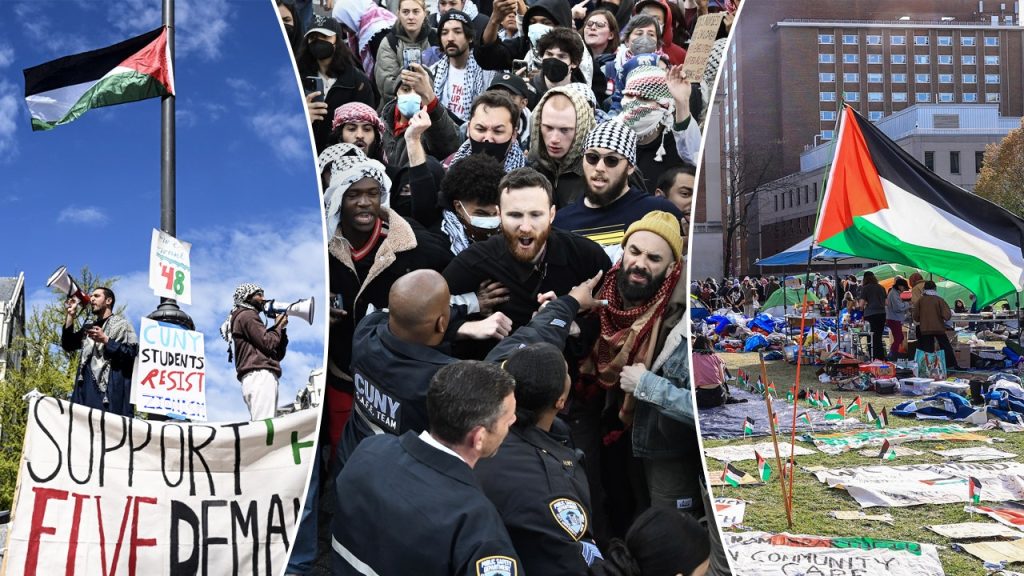Calls are increasing for schools affected by anti-Israel unrest to consider temporarily closing as many colleges are choosing to take a hands-off approach to the ongoing protests and demonstrations. The movement has escalated to include explicit threats of violence against Jews and supporters of Israel, sparking concerns about the safety of students on these campuses. Individuals like Brooke Goldstein, a human rights attorney and founder of the End Jew Hatred movement, are advocating for universities to shut down, arrest trespassers, and take a stand against radical protesters before reopening for in-person learning. Incidents such as a University of Michigan student calling for violence against Zionists have raised alarm among those monitoring the situation.
The University of Michigan has faced criticism for its response to the anti-Israel unrest on its campus, with calls for immediate action against those who violate the school’s code of conduct. The Anti-Defamation League has urged the university to address statements made by one of its students that called for violence against supporters of Israel. The school has condemned such messages but has not disclosed any disciplinary actions taken against the student involved. Similarly, Columbia University has been dealing with a large anti-Israel encampment that has caused controversy, with students making inflammatory remarks against Zionists. Legal experts are citing the need for National Guard deployments on college campuses as a necessary measure to ensure the safety of students and prevent further violence.
Brooke Goldstein and other legal experts are advocating for National Guard deployments on college campuses to address the unrest caused by anti-Israel protests, arguing that such action is essential to protect American citizens. Goldstein maintains that the refusal of schools to enforce their own rules has led to a rise in violence and harassment, necessitating a stronger response. By bringing in the National Guard, she believes that communities can avoid further escalations of violence and ensure the safety of all individuals. Some campuses dealing with large protests are encouraged to consider closing entirely if they are unable to guarantee the safety of their students amid ongoing tensions.
Ilya Shapiro, the director of constitutional studies at the Manhattan Institute, highlights the importance of enforcing existing rules and regulations on college campuses to prevent disruptions caused by protests. While schools have guidelines in place to address various forms of unrest, the challenge lies in ensuring that administrators are willing to enforce these rules effectively. The issue of campus encampments has raised concerns about maintaining public order and equal educational opportunities for all students. Shapiro suggests that a request to use the National Guard from state governors or the federal government could potentially restore order and protect students affected by the anti-Israel protests.
Title VI of the Civil Rights Act of 1964 plays a significant role in ensuring equal educational opportunities and preventing discrimination based on race, color, or national origin. The argument is that Jewish students are being denied these opportunities due to the ongoing anti-Israel unrest on college campuses, creating a need for intervention to address the situation. By invoking Title VI, advocates hope to hold universities accountable for enforcing rules and regulations that protect the rights and safety of all students. The debate surrounding the use of the National Guard in response to the protests underscores the need to address security concerns and uphold the principles of equality and safety within educational institutions.


